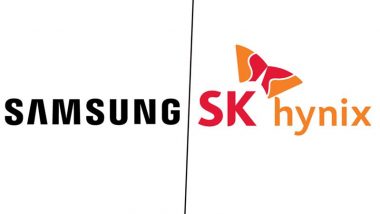
Advancements in computing are transforming industries and unlocking new potential. This white paper explores Quantum AI, which is the innovative integration of quantum computing and artificial intelligence. It covers foundational concepts and the synergy between quantum AI and high-performance computing (HPC).
Additionally, the paper examines real-world applications in areas such as drug discovery, supply chain management, and finance, highlighting how these developments can lead to groundbreaking computational solutions that will revolutionize various industries. What is Quantum AI? Quantum AI is nothing but a tremendous approach. It combines quantum computing and machine learning to develop better, super-smart, and powerful AI models.

Exploiting quantum systems, which have unrivaled computer power, quantum AI provides solutions to complicated problems efficiently and effectively, much faster and more effectively than classical computers. The combination of quantum computing and artificial intelligence takes the parallel processing capabilities of quantum systems to improve machine learning algorithms. This synergy allows for fast and efficient problem-solving, which gives businesses the ability to tackle difficult challenges in drug discovery, supply chain optimization, and financial modeling, thus driving innovation and competitive advantage.
This section delves into the change from classical computing to quantum computing, which utilizes the revolutionized qubits and possibilities. Classical Computing: Foundations of Modern Technology Classical computing is based on physics, utilizing bits as the fundamental units of data, where each bit can represent a state of either 0 or 1. These bits are processed sequentially using discrete transistors in computers.
The landscape of computing changed significantly with the development of integrated circuits in the 1960s. Integrated circuits allowed multiple transistors to be combined into a single chip, which marked the beginning of modern computing. This advancement made it possible for microprocessors to drive various systems, enabling the creation of devices such as laptops, smartphones, and servers.
This era has also seen significant development in artificial intelligence (AI) and machine learning (ML) technologies, which are supported by powerful processors, specifically graphics processing units (GPUs). Quantum Computing: The Next Level Quantum computing represents a revolutionary advancement, relying on the principles of quantum mechanics rather than classical physics. Unlike classical bits, which can only exist in one of two states (0 or 1), quantum bits, or qubits , can leverage phenomena like superposition and entanglement to exist in multiple states simultaneously.
This capability allows quantum computers to perform parallel computations, providing solutions to problems that are insurmountable for classical computers. The concept of quantum computing was introduced in the 1980s by Richard Feynman, who recognized the potential to use quantum systems for simulating natural processes. While quantum computing is still in its early stages, it has made some significant strides and shows promise for breakthroughs in areas like optimization, cryptography, and artificial intelligence.
The potential impact of quantum computing varies across different industries, including finance, healthcare, and logistics. Classical AI and Role of Quantum Computing Advancements in classical computing have driven the growth of artificial intelligence (AI), largely due to the exponential increase in computing power resulting from developments in microprocessors, as predicted by Moore's Law. However, the demands of AI and machine learning (ML) are starting to exceed the capabilities of classical computing.
Quantum computing is expected to fill this gap, offering unmatched processing power and paving the way for new innovations in AI and expanding the boundaries of what can be computed. Advantages of Quantum AI This section discusses the major benefits of Quantum AI, such as quantum speed-up, superposition and entanglement, and quantum algorithms that are still in their infancy Quantum Speed-Up: A quantum computer will process information exponentially faster than a classical computer. Processing acceleration will give AI applications big data or complex computation to get better solutions in effectiveness.
Superposition and entanglement: Quantum computing utilizes superposition, allowing a qubit to exist in multiple states simultaneously. Additionally, qubits are correlated through entanglement; the quantum properties of quantum artificial intelligence (QAI) enable the evaluation of multiple solutions at once, thereby facilitating the rapid resolution of complex problems. Quantum Algorithms for AI : Emerging quantum algorithms, such as Quantum Neural Networks (QNNs) and Quantum Support Vector Machines (QSVMs), are being developed to tackle tasks like pattern recognition, optimization, and reinforcement learning more efficiently than their classical counterparts.
How Quantum AI Works? Quantum Computing Basics : Quantum computing relies on qubits rather than classical bits. While classical bits represent data as either 0s or 1s, qubits can exist in multiple states at the same time due to a property called superposition. This ability, combined with entanglement and quantum interference, allows quantum systems to process large amounts of data in parallel.
As a result, they can solve complex problems much more quickly than classical computers. AI and Machine Learning : Artificial intelligence (AI), especially machine learning , focuses on analyzing large datasets to identify patterns, make predictions, and learn from the data. Traditional AI models, like neural networks, demand significant computational resources, particularly for large-scale tasks.
In contrast, quantum AI utilizes the power of quantum computing to explore multiple solutions simultaneously, which could potentially speed up the learning process and provide faster, more accurate results. What are types of quantum AI Algorithms? The following are key quantum AI technologies that are driving advancements in this field: Quantum Computing : Quantum computers utilize qubits, which differ from classical bits by allowing multiple states to exist simultaneously. This property, known as superposition, along with entanglement, enables quantum computers to process information in parallel, dramatically increasing computational power for AI tasks.
Quantum Machine Learning (QML) : Quantum machine learning (QML) combines quantum computing with traditional machine learning algorithms to improve their performance. By utilizing quantum algorithms like Quantum Support Vector Machines (QSVM) and Quantum Neural Networks (QNN), QML accelerates data processing, enhancing tasks such as classification, clustering, and reinforcement learning. Quantum Neural Networks (QNN) : A specialized type of neural network designed to function on quantum computers.
Quantum Neural Networks (QNNs) utilize quantum phenomena, such as superposition and entanglement, providing exponential improvements in training and inference times compared to classical neural networks, particularly with large datasets. Grover’s Algorithm : Grover's algorithm is for search and optimization tasks. In the realm of AI, it can significantly accelerate database searches and tackle optimization problems, which are essential components of machine learning applications such as model training and pattern recognition.
Quantum Boltzmann Machines (QBM) : A quantum version of classical Boltzmann Machines, which are used for unsupervised learning. QBMs use quantum mechanics to explore possible configurations more efficiently, improving the process of learning patterns in complex datasets. Quantum Support Vector Machines (QSVM) : These enhance classical support vector machines by leveraging quantum computing.
They are used for classification tasks and can handle more complex datasets and improve accuracy compared to traditional methods. Quantum-enhanced Optimization Algorithms : Quantum computers excel at solving optimization problems, which are integral to AI. Quantum-enhanced algorithms like the Quantum Approximate Optimization Algorithm (QAOA) can provide solutions to combinatorial problems that are challenging for classical computers.
Quantum Data Encoding : Quantum AI encompasses methods for encoding data into quantum states, enabling more efficient task performance. These methods leverage quantum entanglement and other quantum properties to enhance data representation for machine learning models. The intersection of quantum computing and artificial intelligence has unlock new possibilities for problem-solving across different industries.
By combining the power of quantum computers with artificial intelligence, both technologies enrich each other by amplifying their strengths and enabling unique solutions that would otherwise remain impossible. Key Elements of Quantum-AI Interoperability Quantum algorithms have the potential to greatly improve classical machine-learning tasks. Techniques such as quantum feature maps and quantum kernel estimation lead to better data classification and pattern recognition, making AI models more powerful and efficient.
Furthermore, the development of quantum neural networks enables the representation of complex functions using fewer parameters, which simplifies the learning process and enhances overall efficiency. Real-World Applications of Quantum AI Drug Discovery: Quantum computers accelerate molecular simulations, which have the potential to rapidly test and analyze drug compounds. AI optimizes these models, thus speeding up the drug discovery process with more accurate predictions.
Financial Modeling: The integration of quantum computing and AI makes better risk assessment and portfolio optimization possible, enabling financial institutions to develop more responsive and accurate trading strategies through real-time data analysis. Cybersecurity: Quantum tech is important for creating quantum-resistant cryptography methods. AI enhances threat detection, strengthens the cybersecurity scheme, and makes a system more resilient to attacks.
Solving Optimization Problems with Quantum-AI Integration Quantum computing is highly effective at solving complex optimization problems that classical systems cannot efficiently handle. Artificial intelligence is essential for evaluating, refining, and implementing these solutions in real-world situations, such as logistics, supply chain management, and resource allocation. This combination ensures that the results are practical and actionable.
Quantum-AI-Enhanced Solutions for Real-World Challenges Energy Management: Quantum AI optimizes power grid efficiency by analyzing vast datasets, predicting energy demand, and improving distribution methods, thereby enhancing energy generation and consumption processes. Healthcare Innovations: Quantum AI has the potential to revolutionize personalized medicine. By analyzing genomic data, it can identify patterns that guide more effective treatment strategies, transforming patient care on a global scale.
Transportation Efficiency: Quantum AI can optimize transportation routes and networks, reducing costs and improving service delivery, particularly in logistics and supply chain management. This results in faster and more efficient systems. The fusion of quantum computing (QC), high-performance computing (HPC), and artificial intelligence (AI) forms a powerful trio that significantly enhances computational capabilities and problem-solving efficiency.
Each technology brings its unique strengths to the table, enabling groundbreaking progress across a variety of fields. Quantum computing excels at solving intricate optimization problems and simulating complex quantum systems; HPC provides the infrastructure for large-scale data processing; and AI improves the performance and accuracy of both quantum and classical systems. This integrated approach provides several benefits, such as faster computations, lower error rates, and improved scalability.
By merging the strengths of quantum computing (QC), high-performance computing (HPC), and artificial intelligence (AI), industries can address challenges that were previously insurmountable. The collaboration of these technologies fosters innovation, leading to new opportunities for developing advanced algorithms and applications that have the potential to transform various sectors, including healthcare and finance. Challenges of Quantum AI While Quantum AI holds immense promise, it faces several key challenges that need to be addressed for its widespread adoption.
Quantum Hardware Limitations : Creating and maintaining stable quantum hardware is a significant challenge, as qubits are extremely sensitive to environmental factors, leading to increased error rates and difficulties in control. Quantum Error Correction : Quantum systems are naturally prone to errors, highlighting the need for advanced error correction techniques to ensure reliable and accurate computations. Hybrid Approaches : A practical way forward likely involves hybrid quantum-classical algorithms that leverage the strengths of classical systems alongside the power of quantum computing, making Quantum AI applications more feasible in the near term.
Scalability : Scaling quantum systems to manage increasingly complex AI tasks presents a significant challenge, necessitating major advancements in quantum system architecture and integration. However, despite these obstacles, Quantum AI offers remarkable opportunities for innovation in computation, optimization, and problem-solving. Researchers, businesses, and governments are investing heavily in Quantum AI, paving the way for a future where quantum computers and AI work together to transform industries and expand the limits of what is computationally possible.
Future of Quantum AI The combination of Quantum Computing and Artificial Intelligence (AI) holds tremendous promise and has the potential to transform various industries, including healthcare, finance, and logistics. By leveraging the immense computational power of quantum computing alongside the analytical strengths of AI, this hybrid technology can tackle problems that were previously unsolvable. Quantum AI may lead to significant advancements in areas such as optimization, drug discovery, machine learning, and complex simulations, providing a level of speed and efficiency that traditional systems cannot achieve.
Despite its transformative potential, challenges remain, particularly in quantum hardware development and error correction. However, ongoing advancements in quantum algorithms, hybrid quantum-classical systems and scalable quantum architectures are steadily overcoming these barriers. As these technologies advance, the combination of Quantum and AI is anticipated to foster unprecedented innovation, transform industries, and provide solutions to complex global challenges that were previously unattainable with classical systems.
Conclusion Quantum AI combines quantum computing and artificial intelligence, providing unprecedented potential to address complex global challenges. By leveraging the power of quantum systems alongside AI's data-driven capabilities, this integration is set to transform industries such as healthcare, finance, and energy. Quantum AI facilitates faster problem-solving and can process vast datasets, driving innovation in areas like drug discovery, supply chain optimization, and personalized medicine.
However, several challenges still exist, including limitations in quantum hardware, issues with error correction, and scalability concerns. Overcoming these obstacles will require the development of hybrid quantum-classical algorithms and advancements in quantum architecture. As research advances, the collaboration between quantum computing and AI will become stronger, reshaping industries and redefining technological innovation.
.















